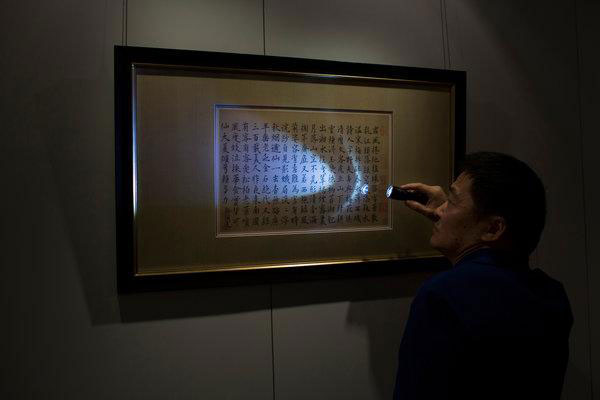Line Drawn on Claimed Corruption in Calligraphy
In Chinese culture, calligraphy holds a hallowed status. In ancient times, emperors, mandarins and poets prized the skill of using ink and a brush to render words, texts and poems on paper with such vigor and grace that the complex characters of written Chinese became an art form of their own.
But in today’s China, not even this austere hobby has escaped the tentacles of corruption. To judge from warnings by Communist Party officials, the calligraphy racket can be as sordid and ruthless as a rigged wrestling match.
The problem has come under discussion since Wang Qishan, the head of the party’s antigraft agency, the Central Commission for Discipline Inspection, warned that calligraphic corruption was in his sights. Presenting himself as both a graft-buster and a connoisseur, Mr. Wang suggested that crooked officials were passing off their scrawlings as valuable masterpieces and dared to present themselves as masters of the difficult «cursive» script.
«Some leading officials can’t even write regular script properly, and still they rush straight into cursive, and then dare mount it to give to others,» Mr. Wang said in a speech in mid-January, according to a report issued by his agency on Friday. «They’ve forgotten the bond between the ruling party and ordinary folk.»
Not that calligraphy has ever been insulated from political power in China. It was the art of emperors, and Mao Zedong prided himself on his poetry and mastery of the bold curves and strokes of cursive script.
He and other later leaders dotted the country with their inscriptions. Just as surely, though, those inscriptions would disappear when officials lost in power struggles.
Even as the party attempts to cleanse calligraphy of corruption, the bonds with politics will stay. After President Xi Jinping laid out his highly traditionalist view of art and culture in October last year, the China Calligraphers Association joined other state-run artistic associations in acclaiming his views.
«The significance of calligraphy has steadily weakened, and some calligraphers have come under the influence of Western artistic trends in their creative work,» warned Shao Bingren, an adviser and former vice president of the association. «To solve these problems, we must grasp and implement the spirit of General Secretary Xi Jinping’s important speech.»
 Line Drawn on Claimed Corruption in Calligraphy
Line Drawn on Claimed Corruption in CalligraphySource: sinosphere.blogs.nytimes.com



